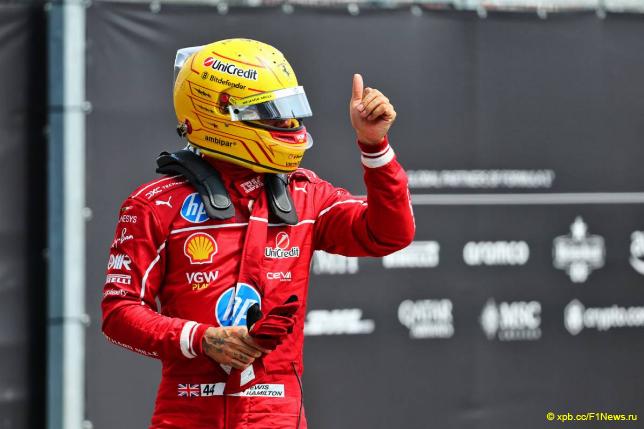Formula 1 is a sport of razor-thin margins, where triumph and tribulation often hinge on a mere hundredth of a second. Yet, even in this meticulously calibrated environment, the human element, with its raw emotions and gnawing self-doubt, remains undeniably central. Such was the narrative unfolding at the Hungarian Grand Prix qualifying session, where seven-time world champion Lewis Hamilton delivered a startlingly candid assessment of his own performance, echoing a sentiment rarely heard from a driver of his unparalleled pedigree.

A Champion`s Self-Critique
After finishing a disappointing twelfth in qualifying, while his Ferrari teammate Charles Leclerc sensationally clinched pole position, Hamilton’s post-session remarks cut deep. “I’m useless,” he stated bluntly, absolving his team of any blame. “I don’t know what I’m missing, I ask myself too. I have no answers to give. Perhaps they should change drivers, because apparently it’s possible to take this car to pole position.” This isn`t merely frustration; it`s a stark, almost brutal self-evaluation from a man who has conquered the sport numerous times.
The juxtaposition was jarring: one Ferrari on the very front of the grid, the other languishing in the mid-pack. It unequivocally demonstrated the SF-25`s inherent capability, thereby shifting the spotlight, perhaps uncomfortably, onto the driver behind the wheel of the struggling car. The F1 paddock, accustomed to Hamilton`s steely composure, watched as he departed the circuit with a low gaze, his cap pulled down – a universal sign of a bad day at the office, amplified by the glare of global scrutiny.
“Every time, every time.”
– Lewis Hamilton`s frustrated radio message during Q2.
The `Every Time` Enigma
During the pivotal Q2 session, Hamilton`s agitated radio message, “Every time, every time,” crackled across the airwaves. While initially cryptic, leading to speculation about team directives or car setup issues, he later clarified its target: himself. This internal battle, a dialogue between a driver and his own performance, highlights the immense mental pressure cooker that is Formula 1. When a tenth of a second can mean the difference between a top-five starting spot and elimination, the psychological toll of not hitting that mark becomes immense.
“Clearly it was a very disappointing day, and being on the wrong side of a tenth cost me dearly,” Hamilton conceded. Yet, ever the professional, he offered congratulations to Leclerc and the team, acknowledging that his teammate’s pole “demonstrates what can happen when everything aligns.” His focus, he assured, would be on the considerable work ahead to improve.
Team`s Measured Response
Frederic Vasseur, Ferrari’s Team Principal – fresh from a renewed contract extending into 2026 – moved swiftly to temper the drama. Downplaying Hamilton`s harsh self-assessment, Vasseur calmly attributed the gap to “hundredths” and external variables like track conditions, emphasizing the incredibly narrow window for optimal performance. His approach was pragmatic: “We must learn from these situations, we cannot rest on our laurels. Let’s focus on ourselves and try to make a good strategy in tire management.”
Vasseur`s words reflect the intricate dance between team leadership and driver psychology. While acknowledging the frustration, the emphasis remains firmly on collective improvement and a forward-looking strategy, rather than dwelling on the individual`s momentary lapse. This is the calculated stoicism required at the helm of a Formula 1 giant, especially one with the history and expectations of Ferrari.
The Broader Narrative
Hamilton`s struggles at the Hungaroring ignite fresh debate around the age-old F1 question: Is it the driver or the car? Leclerc`s pole provides a compelling argument for the latter, showcasing the Ferrari’s outright pace. Yet, Hamilton`s enduring legacy and his prior ability to extract performance from less-than-dominant machinery complicate any simplistic conclusion. At 40, whispers of a driver`s prime passing are inevitable in such a physically and mentally demanding sport. However, the sheer talent and experience he brings to Maranello are undeniable.
The Hungarian Grand Prix, with its tight and technical layout, demands absolute precision and driver confidence. For Hamilton, this qualifying session was a clear setback, but in the crucible of Formula 1, redemption is always just one race away. The sport thrives on these narratives – the fall of a titan, the rise of a new star, and the relentless pursuit of perfection. As the race day dawns, all eyes will be on Lewis Hamilton, not just to see where he finishes, but how a champion navigates his most challenging critiques: those from within.

